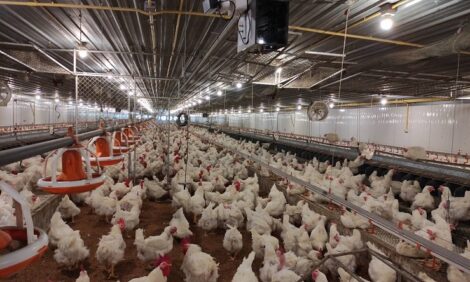



Hot Topics to be Addressed at WPSA Meeting
UK - The Annual Meeting of the national branch of the World's Poultry Science Association (WPSA) will be held on 16 and 17 April at Nottingham University. Key topics in the programme are the future for therapeutic use of antibiotics and unexpected consequences of genetic selection in broilers and turkeys.The highlight of the year will
again be the Annual Meeting, this
year held on 16 and 17 April
2013, says Branch Secretary, Steve Lister.
Despite some suggestions
of a change in venue, the 2013
Meeting will again be held at the
Jubilee Campus of Nottingham
University, which offers a range
of accommodation and meeting
rooms and the opportunity to
network and renew
acquaintances with WPSA
colleagues.
As in previous years
the Meeting will run alongside the
BSAS and AVTRW symposia, will
incorporate a joint session, the
Hammond Lecture and, of
course, the Gordon Memorial
Lecture.
This year, the Gordon Memorial
Lecture will be
delivered by Dr Paul Hocking
who has had a long and
important association with WPSA.
The Lecture is titled:
'Unexpected consequences
of genetic selection in
broilers and turkeys:
problems and solutions'.
Day 1 of the meeting will include original
communications from members and
an invited speaker session entitled
'Therapeutic use of antibiotics:
Where are we now and where
are we going?'
This will be followed by the Gordon
Memorial Lecture and in the evening
the WPSA Annual Dinner at the
National College.
Day 2 will start with the Hammond
Lecture, followed by a Joint
WPSA/BSAS Industry Session on
'How can we manage without
therapeutic antibiotics – and
why should we?'
The morning will
be completed by further original
communications, the AGM and the
award and presentation of the
President's prizes.
Full details and application forms
will soon appear on the WPSA
web site [click here].








